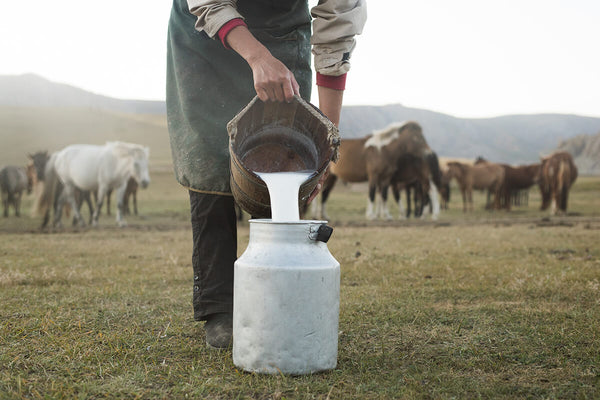Muslims all over the world are required to consume halal food. This means that the food must be permissible according to Islamic law. When it comes to horse milk, there is some debate as to whether it is halal or not. The Quran does not explicitly mention horse milk. Still, several hadiths discuss horse milk, and most scholars seem to believe it is permissible to consume. However, a few scholars take the view that it is not acceptable. This blog post will look at the arguments for and against horse milk being halal.
Get a free sample pack!Is All The Milk Halal?
There is some debate over whether all milk is halal. The main argument against milk being halal is that it contains rennet, an enzyme derived from animals. However, many scholars argue that milk is still halal as long as the animal that produced the rennet is itself halal. While most milk sold in stores is halal, some brands are not. This is because the milk may come from cows fed non-halal food or treated with non-halal products. So, if you're looking for halal milk, parmesan cheese, Mozzarella cheese or other dairy products, check the labels before buying.
Is Mare's Milk Haram?
Mare's milk is a popular dairy product in many parts of the world. It has been consumed by humans for thousands of years and is still consumed by some people today. Mare's milk is high in protein and fat and has a similar composition to cow's milk. But there is some debate over whether or not it is permissible for Muslims to consume it. The Quran does not explicitly forbid the consumption of mare's milk. Still, some scholars interpret a passage in the Quran about the prohibition of consuming the milk of certain animals to mean that mare's milk is also included in this prohibition.
Ultimately, the decision of whether or not to consume mare's milk is a personal one. Muslims who are unsure whether it is permissible to drink mare's milk can consult with a religious scholar or you can also use Halal calculator to get a more definitive answer.

The Rulings On Horse Milk
Horse milk has been used as a food source and medicinal remedy for centuries. In recent years, there has been a resurgence of interest in horse milk, with some claiming it has health benefits. However, there is no scientific evidence to support these claims.
In most developed countries, horse milk sales are regulated by food safety laws. Currently, there are no federal laws in the United States that regulate the production of horse milk. However, some states have laws and regulations. For example, in California, it is illegal to slaughter a horse to sell its meat. As a result, any horse milk produced in California must come from still-alive horses. In the United States, the sale of horse milk is allowed, but it must be clearly labeled as such. In Europe, the sale of horse milk is forbidden in some countries, while in others, it is allowed but regulated.
As more research is conducted on horse milk, we may learn about its potential health benefits. It is essential to know the existing regulations surrounding its sale and consumption.
Bottomline
After careful consideration, we have concluded that horse milk is, in fact, halal. This is based on the fact that horses are considered clean animals, and there is no mention in the Quran or Hadith of horse milk being forbidden. Therefore, we believe it is permissible for Muslims to consume horse milk.


